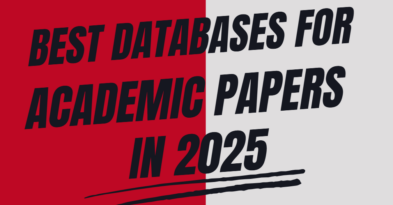19Jan
- Home
- Why Your PhD Manuscript Rejected: How to Avoid Them
- PhD Research Updates
- Why Your PhD Manuscript Rejected: How to Avoid Them

As a PhD scholar, one of the most challenging moments in the academic journey when your PhD manuscript rejected. Whether it’s your thesis, research paper, or any academic article, a PhD manuscript rejection can feel discouraging. However, understanding why your PhD manuscript was rejected can help you refine your work and increase the chances of success in the future.

One of the primary reasons a manuscript gets rejected that it lacks originality. PhD research all about contributing something new to the field, and if your work doesn’t present a novel perspective or research finding, it may be deemed as redundant.
How to Avoid This:
A well-structured manuscript key to ensuring clarity and flow in your argument. If your manuscript lacks proper organization, it can confuse readers and reviewers, resulting in rejection.
How to Avoid This:
The literature review sets the foundation for your research. If your manuscript does not engage deeply with existing literature or fails to identify key studies, it may appear underdeveloped.
How to Avoid This:
If your methodology weak, flawed, or lacks rigor, reviewers may question the validity of your research. This can lead to immediate rejection, especially if your results cannot be trusted.
How to Avoid This:
Even the most groundbreaking research can be rejected if it’s poorly written. Grammar and language issues can make your work appear unprofessional, hindering your chances of publication.
How to Avoid This:
Most journals and academic institutions have strict submission guidelines. Ignoring or failing to follow these guidelines can lead to immediate rejection.
How to Avoid This:
A weak or ambiguous conclusion can leave your manuscript lacking impact. If your conclusion doesn’t tie together your findings or show the significance of your work, reviewers may find it insufficient.
How to Avoid This:
If your manuscript was previously rejected or returned with feedback, failing to address the comments or revisions can lead to repeated rejections.
How to Avoid This:
Rejection of your PhD manuscript is tough, but it doesn’t mean the end of your academic journey. A PhD manuscript rejected for common pitfalls can be refined. By understanding why your PhD manuscript was rejected, you can improve your chances of success. Ensure that your work is original, well-structured, methodologically sound, and free of errors.
If you need support with your manuscript, Kenfra Research can help. From plagiarism checking to topic selection and thesis development, our services are designed to ensure your research is of the highest quality. Don’t let rejection discourage you; use it as a learning opportunity to fine-tune your work and continue progressing in your academic career.

In the realm of academic research, accessing reliable and high-quality sources is paramount. Whether you're a seasoned scholar, a... read more

The pursuit of a PhD is a transformative journey that expands your academic horizons and opens doors to global opportunities.... read more

Starting a PhD is a major life decision, and planning ahead is key to a smooth transition from your... read more
Call to recall Vice-chancellor at save Andhra University: If there is a call to recall the Vice-Chancellor at Andhra University, it... read more

Starting the literature review section of your research paper, can be challenging, as it requires not only summarizing existing research... read more
Vectors, RAG are behind a lot of the AI magic RAG (Retrieval-Augmented Generation), and similar techniques are foundational to many AI... read more
Vizag faculty makes it to book of records with prison literature: "PU" could refer to various universities or educational institutions, and... read more
Is PhD mandatory for Assistant Professor from 2023 ? As you begin your search for an assistant professor position, it... read more
WhatsApp us
Leave a Reply